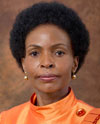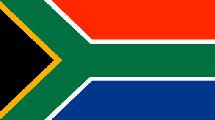By Minister Maite Nkoana-Mashabane

The death of former Cuban president Fidel Castro was felt deeply by many Africans, as the late leader contributed both militarily and diplomatically to many liberation struggles on the African continent.
LAST week South Africa joined the world in celebrating the life of one of the great heroes of the 20th century, former president Fidel Castro, who passed away, aged 90, on November 25.
Castro left his mark on history as a renowned internationalist and anti-imperialist, who selflessly supported the struggles of the oppressed and the exploited.
He stood in solidarity with liberation movements in Africa, supporting our struggle for independence and the international campaign to isolate the apartheid regime.
Relations between South Africa and Cuba are significant. They were forged in the common struggle against apartheid and colonialism on the African continent.
The victory of the Cuban People’s Movement for the Liberation of Angola (MPLA) forces, fighting side by side with liberation forces against apartheid’s South African Defence Force at the battle of Cuito Cuanavale in southern Angola in 1988 paved the way for the independence of Namibia in 1990.
South Africa’s first democratically elected president, Nelson Mandela, acknowledged that the Cuban military victory at Cuito Cuanavale marked “the turning point for the liberation of our continent, and of my people, from the scourge of apartheid”.
Following South Africa’s democratic transition, South Africa and Cuba established formal diplomatic relations in 1994 and opened resident embassies in Pretoria (1994) and Havana (1995), respectively.
In 2009, Castro was honoured by South Africa on two occasions, namely the Order of the Companions of OR Tambo, as well as the Ubuntu award by the National Heritage Council.
In South Africa’s hour of bereavement, when former president Mandela passed away on December 5, 2013, Cuba sent a high-level delegation to the country, presided over by President Raul Castro, first secretary of the Central Committee of the Communist Party of Cuba.
The bestowal of the Order of Jose Marti on President Jacob Zuma in 2009 during his state visit to Cuba reflected the depth of friendship and ties between the two countries.
The same honour had previously been bestowed on presidents Mandela and Thabo Mbeki during their respective state visits to Cuba. In 2012, South Africa bestowed the Order of OR Tambo on the Cuban Communist Party veteran and internationalist Prof Jorge Risquet for his sterling contribution to the anti-apartheid struggle and the international peace negotiations that followed after the ceasefire agreement in Angola.
The pre-1994 support given for the liberation of South Africa included the education of South African students.
Many South Africans carried Cuban passports to facilitate international travel.
Cuba has, therefore, been the backbone of South Africa’S liberation despite its many own challenges. After 1994, Cuba was one of the first to offer material and human resource support.
The success of South Africa’s political bilateral and multilateral relations can, therefore, be measured in the extent of the numerous development programmes, cooperation projects as well as the strong political and social solidarity and support that exist between our two countries and peoples.
Cuba has become an established strategic partner for South Africa in the Latin American region and within multilateral forums.
Cultural and historical ties, as well as shared struggles and common aspirations, create the basis for a strong bond of solidarity between Cuba and South Africa and the continent of Africa.
The past 22 years of diplomatic relations between South Africa and Cuba have been marked by robust and constructive interactions at both bilateral and multilateral level.
In addition, Cuba has enjoyed the unequivocal » Relations between South Africa and Cuba are historic support of South Africa at the UN General Assembly, where South Africa voted in favour of a call to lift the US-imposed economic blockade against Cuba.
There are over 30 signed bilateral agreements in place between the two countries, covering vast areas of cooperation; for example, education, science and technology, agriculture, health services, housing and water and sanitation.
Cooperation is highest in the areas of health, human settlements and public works.
The year 2016 marks the 20th anniversary of the arrival of the first group of Cuban doctors in South Africa.
Under the auspices of the 2012 Agreement on Cooperation in the Fields of Public Health and Medical Sciences, almost 3 000 South African students are receiving medical training in Cuba.
Meanwhile, 36 Cuban engineers are working in South Africa under the auspices of the South Africa-Cuba Agreement on Cooperation in the Fields of Water Resource Management and Water Supply, signed on September 9, 2013. We in South Africa must endeavour to take forward the ideals that Castro espoused: internationalism, freedom, equality, justice and a better and more just world.
Maite Nkoana-Mashabane is Minister of International Relations and Cooperation.





